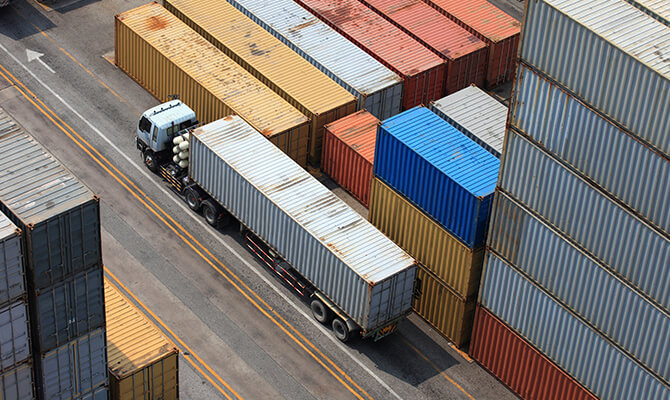The movement of freight by means of various types of transport universal or special. The movement of soil on a construction project by means of bulldozers and other construction machines is not related to cargo transport. There are two types of cargo transport: introduction cargo transport, which is technologically related to the production of one or another item within the boundaries of a specific enterprise, and national economic cargo transport, which involves the transport of products from producers to consumers either directly (transit deliveries) or by way of trade networks and long- term storehouses (repeated shipments). Cargo transport volume (in tons) depends on production and import volumes and the coefficient of shipment repetition, that is, the factor denoting the number of times the same ton of production is shipped from a production enterprise to the place where it is ultimately used (in production or by final consumers).

In 1967 all modes of transport in all the world’s nations transported about 85 billion tons an average distance of 258 kilometers. With the total size of all the world’s industrial and agricultural products equal to about 26 billion tons, each production ton was shipped an average of 3.3 times. In 1970 in the USSR almost 18 billion tons of cargo were shipped
THE WORLD’S CARGO TRANSPORT VOLUME HAS INCREASED ALMOST 15 TIMES LAST 50 YEARS
The coefficient of repetition depends on the existing system of product procurement and marketing, the magnitude of shipment transit norms, the capacity and location of warehouses, the degree of development of so-called mixed shipments carried by two or more modes of transport (in such shipments the same product is considered separately for each mode of transport; that is. it can be counted more than once), and other factors. As a rule, in socialist nations, the coefficient of shipment repetition is lower than in capitalist nations because of the advantage

